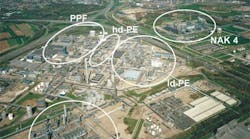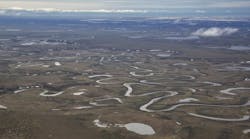A recent study comparing emissions from current in-use diesel and compressed natural gas-fueled buses with those from a similar diesel-fueled bus equipped with advanced pollution controls would seem to challenge conventional thinking about certain clean fuel technologies.
Last month, the California Air Re- sources Board (CARB), Sacramento, received results from the study, which suggested that both CNG and diesel engines would require additional emission controls in order to achieve "substantial and beneficial emission reductions" being demanded by that state, according to CARB Chairman Alan Lloyd.
"Although it is known that CNG total particulate matter and nitrogen oxide emissions are lower than diesel emissions without exhaust aftertreatment, the data suggest that the levels of some toxic pollutants in CNG exhaust require further study and may warrant additional control," CARB said in a written statement. It should be noted that the CNG bus used in the study was not equipped with a particulate filter or any other proven aftertreatment equipment, such as an oxidation catalyst, the board said.
Further tests are now being conducted using the same CNG bus-this time refitted with an original equipment manufacturer's oxidation catalyst-and a new, state-of-the-art CNG bus equip- ped with a manufacturer-installed oxidation catalyst. These test results should become available by midyear, CARB said.
Diesel shows promise
One of the diesel buses used in the study was outfitted with a new particulate filter, which "produced promising test results for several pollutants," CARB stated. "This bus, running on low-sulfur fuel, produced lower emissions than either the diesel or CNG 'baseline' buses in terms of the total mass of particulate matter (PM) and the amount of toxic organic compounds," the board noted.
Both diesel buses, however, showed higher NOx emissions than the CNG bus, and the filter-equipped diesel bus exhibited a substantial increase in the amount of NOx, in this case, emitted as nitrogen dioxide, CARB said. "Heightened emissions of NO2 often leads to more rapid formation of atmospheric ozone and nitrate PM," CARB stated, adding, "Particulate filter manufacturers have acknowledged this issue and have expressed confidence that the conversion of NOx to NO2 can be reduced."
Compared with the conventional diesel bus, both the CNG bus and the trap-equipped diesel bus produced lower emissions, Lloyd said. "When the diesel bus was refitted with a trap and run on low-sulfur fuel, its performance was very promising," he added.
Jumping the gun
Reacting to the study, Washington, DC-based Diesel Technology Forum (DTF) said that California's South Coast Air Quality Management District (SCAQMD), based in Los Angeles, may have "jumped the gun" in its mandating the use of CNG for buses and other vehicles falling within its jurisdiction. The district's 2-year-old CNG-only decision, according to DTF, was based on "conjecture" rather than "comparative data."
According to DTF, SCAQMD's CNG-only policy has been the impetus be- hind the use of hundreds of millions of taxpayer dollars for new CNG vehicles and fueling stations-all this in a state already deprived of natural gas resources.
Allen Schaeffer, DTF executive director, said, "This study certainly challenges conventional thinking-it shows us that alternative fuels like CNG are not always as clean as they have been accepted to be, and more importantly, that we have not given fair consideration to the tremendous progress made in clean diesel technology."
DTF noted that CARB discovered through the study that a diesel bus with a soot trap outperformed a newer CNG bus in 8 of 11 pollution tests. "The results also suggest that the CNG exhaust components may be more harmful than those from low-sulfur diesel fuel," DTF said.
DTF likened SCAQMD's decision to that of California's overall struggles with the banning of the gasoline additive methyl tertiary butyl ether: "Several months ago, California determined that it didn't adequately study the adverse effects of the gasoline additive MTBE before mandating its use, and Californians are now paying the price," Schaeffer said.
"All engines produce emissions, and neither diesel nor CNG is exempt," Schaeffer said. "These kinds of studies not only improve our knowledge of the science, but we also hope they promote change in the process that compares technologies and the perception and understanding about just how far we have come in diesel technology," he added.

